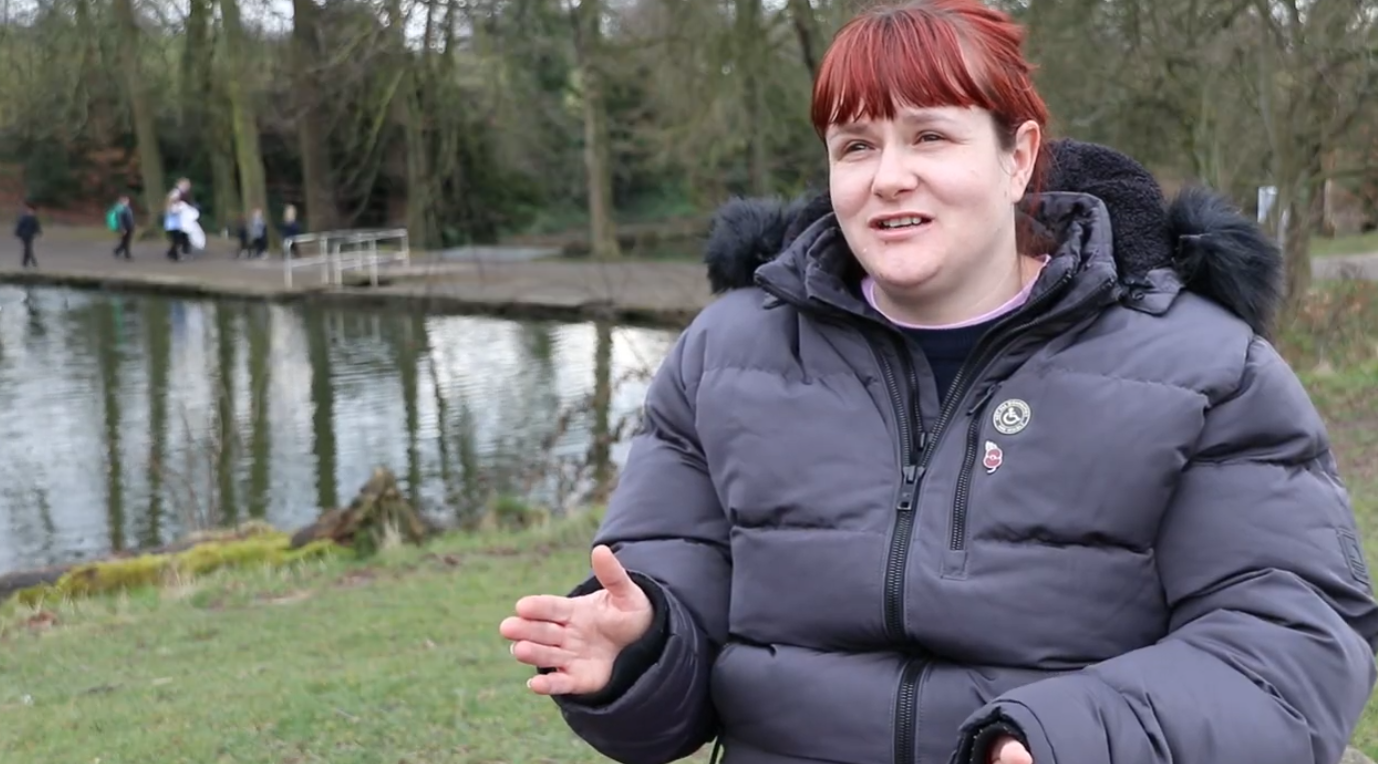
“I felt like I’d done something wrong”: Sheffield women share their PIP assessment experiences
A Sheffield woman who is battling a debilitating condition which leaves her struggling to walk and in constant pain has said securing financial security through the government targeted PIP process was one of the hardest battles of her life.
It took Rachel Wood, who has stage 4 endometriosis, 18 months and a court appeal to be granted Personal Independence Payments.
She now fears other people, in her position, won’t be given the financial aid they desperately need.
“I wouldn’t wish it on anyone” she says, “my hope for future generations of girls is more support, so that they don’t suffer like I have.”
The Department of Work and Pensions’ announcement last week outlined a proposal of £5 billion cuts, which will make PIP even harder for many to access.
Green Party Councillor for Broomhill and Sharrow Vale, Angela Argenzio, has called the cuts “ethically and morally unjust for the people affected”, and suggested the government are "cowardly."
Personal Independence Payments have historically provided financial aid to people with a long-term physical or mental health condition or disability, and are intended to help cover the additional costs of being disabled.
Rachel, 41, from Sheffield, understands more than most how endometriosis, a condition where cells including the womb lining grow elsewhere in the body, causing pain, inflammation and scar tissue, can leave a sufferer unable to do the most simple of tasks.
“It impacts everything,” she says. “Even, like going to the toilet. I can’t walk very far at all, and it affects you mentally a hell of a lot. I would have pain three out of the four weeks [of the month]. My first marriage even broke down, as he just didn’t understand the condition.
“It can be atrocious trying to go to work. Sometimes it all just gets on top of you, and if it’s a really bad day work just kills me.”
Endometriosis is a fluctuating condition, and has resulted in eight surgeries for Ms Wood, including the removal of part of her ureter and bowel, a bowel resection, and a hysterectomy.
Rachel first applied for PIP at the end of 2023, but despite her daily challenges, and 192 pages of medical evidence, she was initially awarded 0 points in her PIP assessment.
“I had the evidence, including a letter from my consultant that I walk with a stick, and that it affects me daily, but it still wasn’t enough,” she says.
A combination of the condition and Prostap - a monthly injection used for endometriosis management that induces a state of menopause - resulted in Rachel having trouble using the bathroom, mobility issues, and the need for more medications, such as antidepressants, HRT and blood pressure tablets.
As a result of her symptoms, Rachel, who uses a mobility aid, has struggled with managing the condition alongside work.
PIP is awarded to claimants on a point-based-system assessing two main components - a daily living part - if you need help with everyday tasks - and a mobility part - if you need help with getting around.
To access the standard rate, someone must receive eight to 11 points for daily living needs, and more than 12 points for daily living or mobility for the enhanced rate.
Rachel appealed the initial decision and went to court to fight her case. “The judge was lovely,” she says. “I was awarded nine points straight away. They took me seriously.” A complete contrast to how Rachel had been initially treated.
But she believes if she wasn’t having a bad day when she went to Court, she might not have been believed.
“It was a bad day when I went in, which was a good thing. I can see it being different going on a ‘good day’, as we call it, or as normal as we can get.”
Receiving PIP has allowed Rachel to lower her hours at work, and better manage her conditions.
“It’s been a fight to get PIP, and it shouldn’t have to be,” she says. “When you’re that poorly, to have to go to court is just awful. I felt like I’d done something wrong.”
Ailish McMillan, 31, received zero points in her PIP assessment, despite suffering from severe depression and endometriosis, and claimed the application process was dehumanising.
The fluctuation of her debilitating symptoms mean that she can go from working her busy hospitality job one week, to being unable to get out of bed the next.
At her worst, she shared that there were only three days of the month that she could function without thinking about it. “How can a person feel that much pain, and still be alive?” She says. “It’s horrendous”.
But despite her health conditions, Ailish was told she was not eligible for PIP, causing her to feel as though the people assessing her application thought she was lying.
“The process of the application is scary and quite harrowing,” says Ailish, from Sheffield. “It was almost like I wasn’t believed. I would crawl to the bathroom seven days a month, you don’t just snap out of that. It’s depressing, really.”
Although Ailish was shocked to see her score, she was not surprised, and is worried about what it means for other people in a similar position.
“To take away the only help targeted at disabled people boggles the mind,” she says. “It’s still sinking in. It just leaves us all out in the cold, and what are we supposed to do?”
Personal Finance Expert Fiona Peake said that PIP is a ‘vital lifeline’ for millions of disabled people across the UK, and that, for many, it’s the difference between keeping the heating on, affording accessible transport, and being able to access the essentials.
Despite misconceptions, PIP is not an out of work benefit. The extra support allows people to order grocery deliveries, make their living space more accessible, purchase mobility aids and medication, and use taxis services, which would otherwise be unaffordable.
Changes to the PIP assessment outlined in the Green Paper propose the payments should be “focussed more on those with higher needs”, and only those who score a minimum of four points in at least one daily living activity will be eligible for the daily living component of PIP.
This creates challenges for many currently eligible for or receiving PIP, that make up their points across different components of the assessment.
“Many people find that assessors just don’t fully understand their conditions, or how fluctuating conditions impact daily life,” says Peake.
“This leads to unfair decisions, forcing people into often lengthy appeals”.
Peake outlined these cuts will impact not only claimants, but also have a knock-on effect on their families, placing more pressure on them for financial and practical support.
“Not everyone has family who can step in,” she says. “And for those who don’t, the impact could be devastating.”
Peake argued if the Government wants to support people into work, simply cutting PIP and other welfare support isn’t the answer.
“They should be looking at ways to make employment more accessible, offering better workplace adjustments, tackling discrimination, and providing better support financially,” she says.
“Without this, [disabled people] could be left choosing between their health and trying to hold down a job that doesn’t accommodate their needs. That’s not fair, and it's not realistic.”

“Cowardly”: Sheffield Green councillor slams government disability benefit cuts
The government’s disability benefit cuts will lead to increased poverty and worse mental health for Sheffield residents, a councillor has warned.
Last week, Work and Pensions Secretary, Liz Kendall, confirmed the government would be tightening criteria for Personal Independence Payments (PIP) and reducing incapacity benefits for new claimants from 2026.
Speaking in the House of Commons she said that the changes aimed to save £5bn a year from the welfare budget by 2030.
However Broomhill and Sharrow Vale councillor Angela Argenzio called the cuts “ethically and morally unjust for the people affected”.
She said: “There are choices that the government could take, but they are choosing to target the most vulnerable people. It’s cowardly really.”
Cllr Argenzio has herself worked in the voluntary sector for seven years, including five years as finance manager of Sheffield Royal Society for the Blind. She is also currently chair of the city’s Adult Health and Social Care Policy Committee.
She said: “It worries me that this will put pressure on local services because people will have to rely more on foodbanks, they will get more ill because they will be more stressed, so as well as typical problems they may have more problems with mental health.
“We’re working so hard in this city to try to make it better for everybody, then something like this happens which will put huge pressure on our residents.”
According to 2021 census data, 20% of people in Sheffield identified themselves as disabled, with 28% of households having one disabled person living in them.
One of these residents is Liz Kieran, a mum of three who suffered a stroke when she was just 27.
Now aged 40, Mrs Kieran struggles with mobility and chronic pain. She said that the cuts would be “catastrophic” for people like her in the city who rely on PIP and universal credit to pay for the daily costs of living with a disability.
Mrs Kieran also volunteers for Disability Sheffield and sees first-hand how people are already struggling.
She said: “A lot of the time you do find it’s disabled people that are ending up having to go to food pantries, because of universal credit, because they’ve been turned down for PIP, or because they’re not getting the help in the community.”
Cllr Argenzio said that the link between poverty and disability was being overlooked by the government’s planned reforms.
She said: “For me, we need to tear down the systemic barriers that make people unwell and reliant on welfare.
“The welfare system is so important because it's a safety net for all of us. All of us, one day, may need some kind of support.”
During her speech on 18 March, Kendall also announced a £1bn package to support disabled people back into work.
She said: “This will mean fairness for disabled people and those with long term health conditions, but also for the taxpayers who fund it as these measures bring down the benefits bill.
“At the same time, we will ensure that our welfare system protects people. There will always be some people who cannot work because of their disability or health condition. Protecting people in need is a principle we will never compromise on.”

Makers’ Market 2025: Sheffield’s independent artisans reflect on ‘demoralising’ reality of the market
Local sellers at Sheffield's first ever Makers' Market said they "can't compete" with established companies such as Amazon and IKEA.
All Good Stuff (AGS), a non-profit that promotes Sheffield's local artists, designers, and artisans, hosted its inaugural Makers' Market last Saturday.
Dawn Ireland, a textile artist with nearly 30 years of experience, said as an independent artist “you can't really compete” against the likes of Amazon and Ikea.
In 1994, she set up her own business as an independent artist and now sells embroidery, vintage fabrics, stamps, and postcards.
Her experiences while exhibiting her products have varied, and she said it is key that an event is “well advertised”.
Ms Ireland found Saturday's Makers' Market “a little bit slow” due to technical difficulties, and also felt unsure whether a lot of people would be arriving at the event when “there's a lot happening in the city this weekend”.
She believes that local artisans have to rely on different factors for things to work out, including people realising that the products are handmade, and that the “right people come to visit” during exhibitions.
Rosie Butcher, who creates a variety of handcrafted cards, was one of the exhibitors.
She said: “When you do something, and then you go to a high street place, and you see [a product] for less, it's a bit demoralising."
Ms Butcher said the idea of making “something very personalised that means a lot” to a customer is what motivates her to keep going.
Stella Eden, another artisan, specialises in soy wax candles, and started her business ‘Getting on Me Wick’ during the COVID-19 lockdown. She researched ways to calm anxiety and began experimenting with essential oils before deciding to make her own candles that may help a person feel calmer when they are dealing with anxiety.
She said: “We make things by hand, which takes longer, and [because of] our costs and everything, I can't compete with the mass production.”
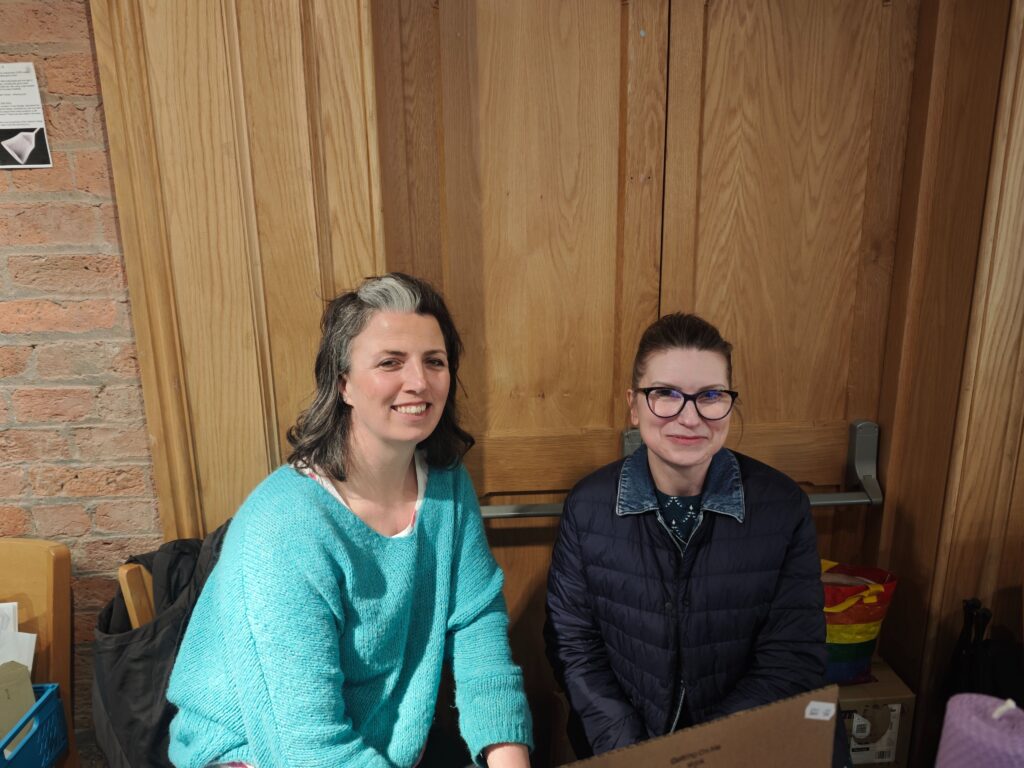
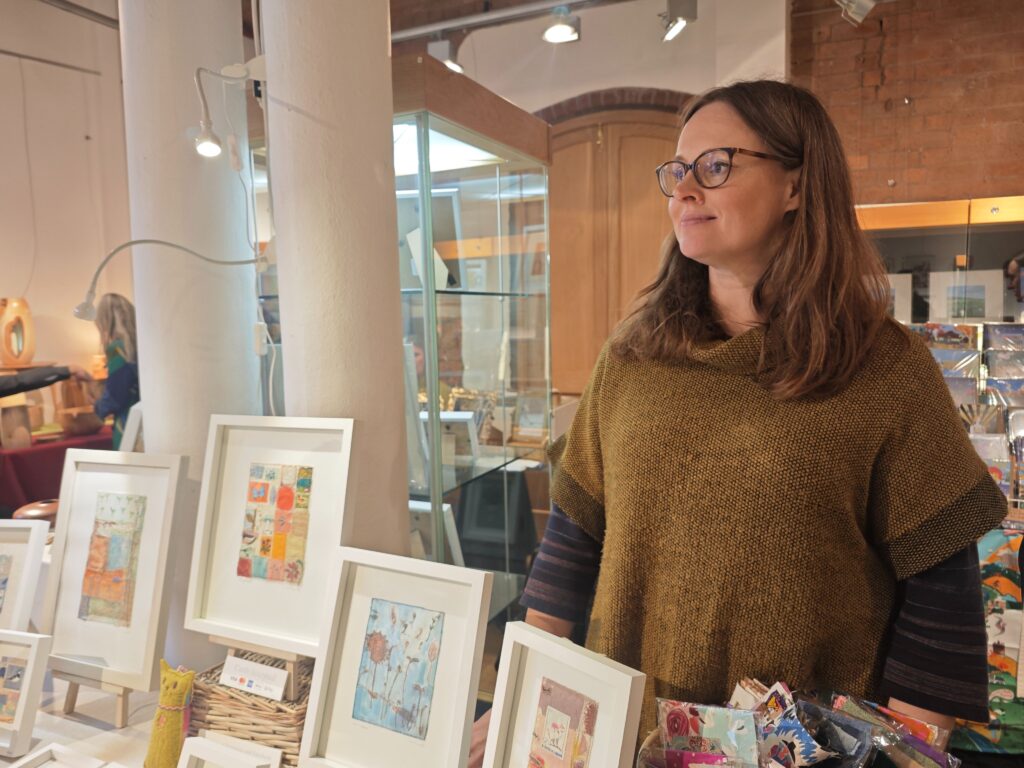
Looking at the positives, the artists shared that while it is difficult to compete against largely manufactured goods and their price points, there is still an audience that exists for handcrafted products.
Ms Ireland said: “I think it's just finding the right audience for the work. Events like this are good because people can meet the maker and find out a little bit more about how the work is made.
"When people meet artists and makers, I think that helps.”
Ms Eden’s experience at exhibitions has largely been positive, as she highlighted the support of a great community. She also talked about the downside of the reality, where she feels that “we live in a society where it's more focused on Amazon, and really fast, mass produced items”.
She said that she still has “a lot of customers who want something that's handmade, and they will pay for more of a quality item”.
Speaking about the support in Sheffield for local artisans, Ms Eden said people are very supportive in the city, and “it's a wonderful place to make things”.
She shared an instance that reinforced her motivation to continue with her business. One day a woman walked into the store as the then unreleased ‘Joy Candle’ was burning, and loved the smell so much she bought it for her wedding.
Ms Eden said: “She had all her friends and her family there and she said the feeling was just overwhelming and she just never forgets that day and on her wedding anniversary.
“I was so honoured that even though I wasn't there, I felt like I was [at her wedding] because she got the joy candle burning, so that brought me so much happiness and joy.”
The woman now always buys the same candle on her wedding anniversary to give to her friends and family.
For Dawn Ireland, it is the positive feedback from people that drives her to continue with her business.
Ms Ireland said: “They see my work and the reaction I get from people that like my work and that makes me think, ‘Yeah, this is why I'm doing it’. Not only do I enjoy making, but when I see people appreciating it, people buying my work, it really makes it worthwhile.”
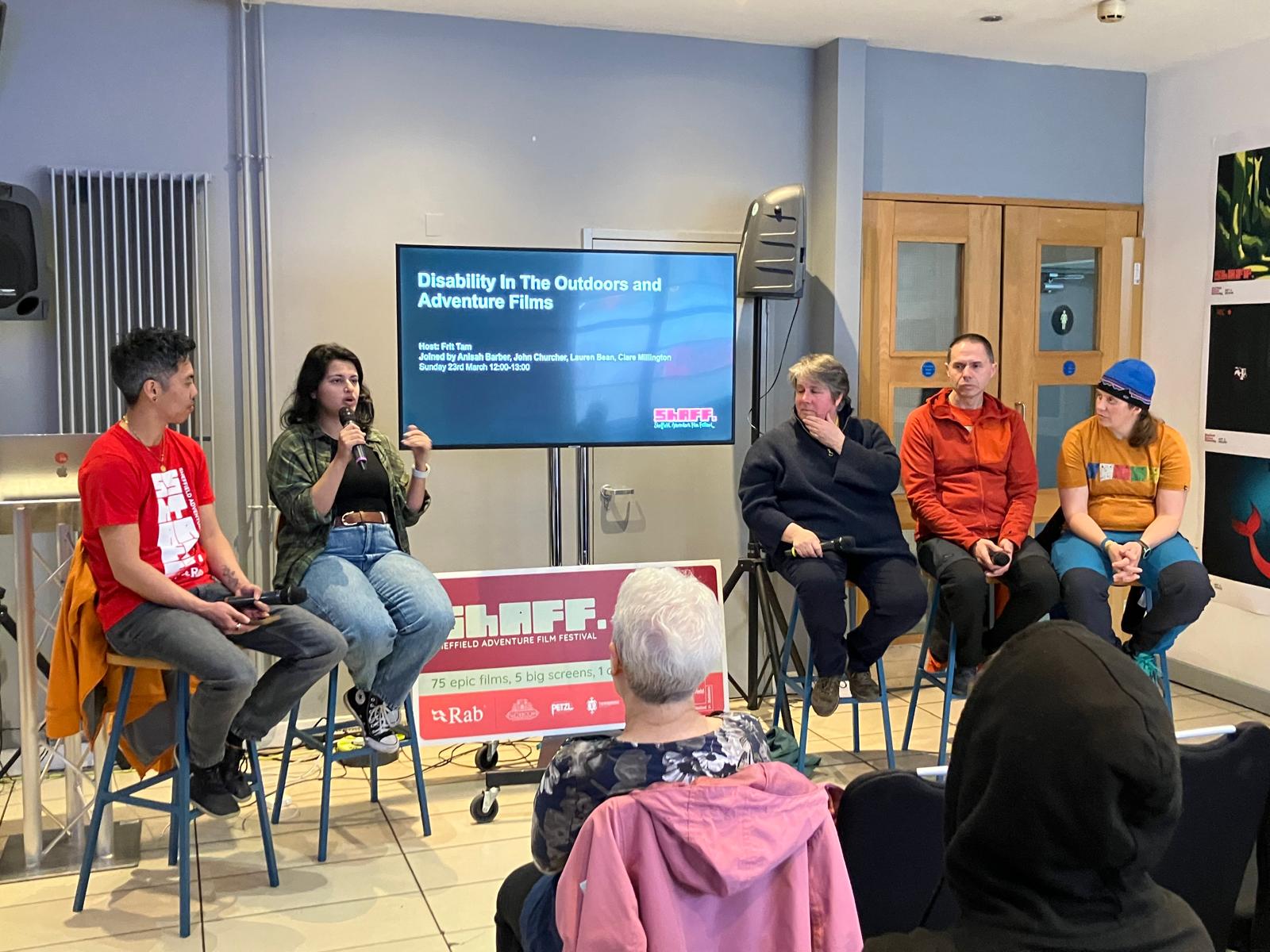
“Not nearly enough films about disabled athletes”: SHAFF ’25 spotlights accessibility outdoors
Panellists spoke about going beyond basic needs and promoting “a good life” during a talk on disability in the outdoors, as part of this year’s Sheffield Adventure Film Festival (SHAFF).
The panel hosted Clare Millington, a mother of twins with learning disabilities, who highlighted the issue of “low expectations”, and included a conversation on how disabled people are represented within the adventure film genre.
John Churcher, another speaker, talked about his climbing experience and said: “Sometimes, people’s attitudes haven’t been the best, so we just try and educate them that blind people can do it.”
A range of viewpoints on the current state of accessibility for disabled people seeking to access the outdoors were shared, with topics like the right-to-roam campaign and the government’s proposal to limit disability support coming under discussion.
Anisah Barber, a disability rights campaigner and director of the Adaptive Riders Collective, spoke about her isolation from the outdoors community when she encountered frustration from “people who look at me and go ‘well, you look fine, so why are you struggling to do this’".
She also drew attention to the additional cost of disability and said: “Specialised kit is even more expensive, brands are perhaps only providing it to well-known people…as much as people might say that the outdoors is free, it’s not.”
SHAFF 2025’s co-director and the panel’s chair, Frit Tam, later spoke with Sheffield Wire and reflected on the hundreds of film submissions sent in for consideration.
He said: "There’s not nearly enough films about disabled athletes. We’re still really, I think, in such early days of that, but also, somewhat frustratingly, it’s 2025 and we shouldn’t be in the early days of that.”
It was a point brought home by Mr Churcher’s sight guide, Lauren Bean, who challenged herself to provide audio descriptions of movies after having to read out "90 minutes’ worth of subtitles".
She said: "I thought it must be lengthy, difficult and expensive because nobody's doing it, and I was just completely taken aback by how easy it was, and I think it just really annoyed me.
“I don’t think it should be acceptable that films featuring a blind person are not audio described…because if you’re making a film about blind people, who are you trying to inspire? Because it’s not other blind people, if it’s not accessible to them. It’s just not right.”
Mr Tam said: “Films create an opportunity to spend time with somebody, or somebody’s story, for an extended period of time in which you can then learn more about someone’s journey.”
During the weekend-long event, a series of film strands were screened, including a new ‘Reconnection’ segment that intended to showcase community-centred movies.
Set in a deprived district of South Dallas in the US, Danny Schmidt and Lindsey Hagen’s 4DWN – one of the films shown as part of ‘Reconnection’ – focuses on the pastoral role that a skatepark-turned-urban-farm is playing in parts of the city where the state has, in effect, retreated.
The crisis of food insecurity and a lack of social infrastructure intertwine, from the viewpoint of a young African-American boy who takes hold of the fragile joy to be found in latter-day skate culture.
Although adventure film remains dominated by the US and UK markets, Mr Tam said: “Here at SHAFF, we want to try and utilise film as a vehicle for sharing messages that we’re passionate about, that other filmmakers are passionate about.
“I think film will continue to have a really strong role to play in continuing to contribute to change.”
Next year, SHAFF celebrates its 20th anniversary and, according to Mr Tam, preparations are already underway.
The festival’s founder, Matt Heason, has promised a sauna and ice bath at the ready outside the Showroom in 2026.

New book charts Sheffield United’s rise from Fourth Division to Premier League
A lifelong Blades fan has released a sequel to his first book: Ain’t Got a Barrel of Money.
Jason Holyhead, a Sheffield local, had his second book: Still Ain’t Got a Barrel of Money, released this morning. Its publication comes three years after the first came out.
This time, the book tracks United’s comeback from the Fourth Division, after dropping there for the first time in the club's history in 1982, to then playing in the 1992-93 inaugural season of the Premier League.
Mr Holyhead said, while “the first book was all doom and gloom” he hopes that the second instalment will “bring back happy memories and trigger fond recollections of just how far United climbed during this period”.
He also said he wanted readers to acknowledge the importance of “old club legends”, such as former Blades chairman, Reg Brealey, who passed away last month.
Mr Holyhead said: “I don’t think he gets the credit he deserves. I hope someone writes a book about him.”
Sheffield United went down to the fourth division in a game against Walsall in 1981, it was the first and only time they had ever dropped so low. This book however is a celebration of how the team managed to climb their way back to success.
Mr Holyhead said: “the fourth division campaign is one of the best seasons in living memory for a lot of supporters” and that is why he wanted to write about it.
Still Ain’t Got a Barrel of Money is also set alongside the strong working-class, industrial industry of Sheffield. Mr Holyhead said it was important for him to contextualise his writing within the background of the 1980s, referencing events such as the Miners’ Strike and Live Aid.
He said: “Sheffield is a working-class, industrial city. As I mentioned, most of the players were from similar backgrounds and I think fans can relate to that.
"To be popular with Blades fans you don’t necessarily have to be the greatest footballer in the world. If you work hard and you’re willing to put your body on the line, that goes a long way.”
The book also discusses the importance of grassroots football and criticises the money that is pumped into the Premier League, often leaving smaller clubs behind.
Mr Holyhead said: “The Premier League has brought us some fantastic footballers and some good managers, but it has done nothing for grassroots football and a lot of smaller teams suffer while the big clubs have got bigger and the rich owners have got richer.
"You see newly promoted teams go straight back down as they simply can’t compete. That’s not good for local or international football - which the men's team still haven't won a trophy in. Thank God for women's football.”
Still Ain’t Got a Barrel of Money is published by Pitch Publishing and will be available in selected bookstores across Sheffield today.
It can also be brought online.
JUS News Morning Bulletin (24 March 2025)
Here’s our JUS News morning news rundown with Cassidy Chan.
Stay tuned for our afternoon news rundown at 2pm.
Sheffield Comic Con 2025
Stormstroopers, wizards, and a doctor that jumps between time, Sheffield Comic Con took place last Saturday.
Organised by Creed Conventions, the event was packed with excitement filled with incredible cosplay and celebrity guests.
Our reporter Cassidy Chan went down to enjoy the atmosphere there, but she seems to be in a bit of trouble…

Steelers claim 4-1 victory to top elite league standings
The Sheffield Steelers secured a crucial 4-1 win over the Manchester Storm on Saturday, climbing to the top of the Elite League standings.
This victory, following a dominant 10-2 triumph over Glasgow Clan, saw the Steelers extend their strong form with a balanced team effort.
After an early goal from Manchester’s Dallas Ehrhardt, Sheffield quickly responded with Robert Dowd's equalizer.
This was followed by a bizarre go-ahead goal from Sacha Guimond when David Tendeck misjudged the puck, deflecting it awkwardly and into the net, handing Sheffield a 2-1 advantage.
The Steelers seized control in the second period, with Dowd scoring again to make it 3-1 and Marco Vallerand adding a rebound goal to extend the lead to 4-1.
Despite a few moments of tension and Manchester’s efforts to fight back, Sheffield's defence and net minding, led by Matthew Greenfield, kept Manchester Storm at bay.
Greenfield finished the game with an impressive 96.15% save percentage, with Sheffield outshooting Manchester 32-26.
Dowd's two-goal performance earned him Man of the Match honours, and the Steelers then sat one point clear at the top of the standings.

Aaron Fox said: "It's a huge weekend for us, hopefully we've put pressure on Belfast and Nottingham.
"It should be an interesting next couple of weeks".
The Steelers, who are currently second in the league, have their work cut out, though, as the Belfast Giants, are at the top, after their 5-2 win over the Guilford Flames, yesterday.
Sheffield’s next challenge comes at home against the Dundee Stars on Saturday, followed by a Sunday trip to face the Fife Flyers, who currently at the bottom of the table.

Peregrine falcons lay eggs at St George’s Church
Birdwatchers are thrilled by the return of peregrine falcons to an inner city nest in Sheffield, where a pair has laid three eggs in the past week - with a potential fourth expected tonight.
The birds are using an artificial platform at St George’s Church on Mappin Street, which was installed in 2012 by the University of Sheffield and Sheffield Bird Study Group to create an urban nesting space.
Currently a university lecture theatre, the church has since seen 34 chicks fledge successfully, with 40,000 viewers tuning into a 24-hour livestream of the nest every year to watch them grow.

Chris Greenwood, a trustee at the Sheffield Bird Study Group, which champions avian conservation in the city, said the first egg of the year was laid on 17 March by a female who has been nesting at the site since 2020.
He said: “It's fantastic to have such an iconic species in such an accessible place for humans to appreciate.
“There's an opportunity to come down and look in person with a pair of binoculars, or watch them on the webcams, and I think that’s a great way of engaging people with nature.”
Mr Greenwood said the church’s height makes the spot an ideal nesting place for peregrines, which historically live on cliffs that allow them to dive-bomb their prey at speeds of over 180 mph.
He said: “For them to be successful, there’s obviously a good amount of prey in the area.
“I've seen the current female go out from the platform and be back with a pigeon in about two minutes, which is phenomenal. So there’s plenty here for them.”
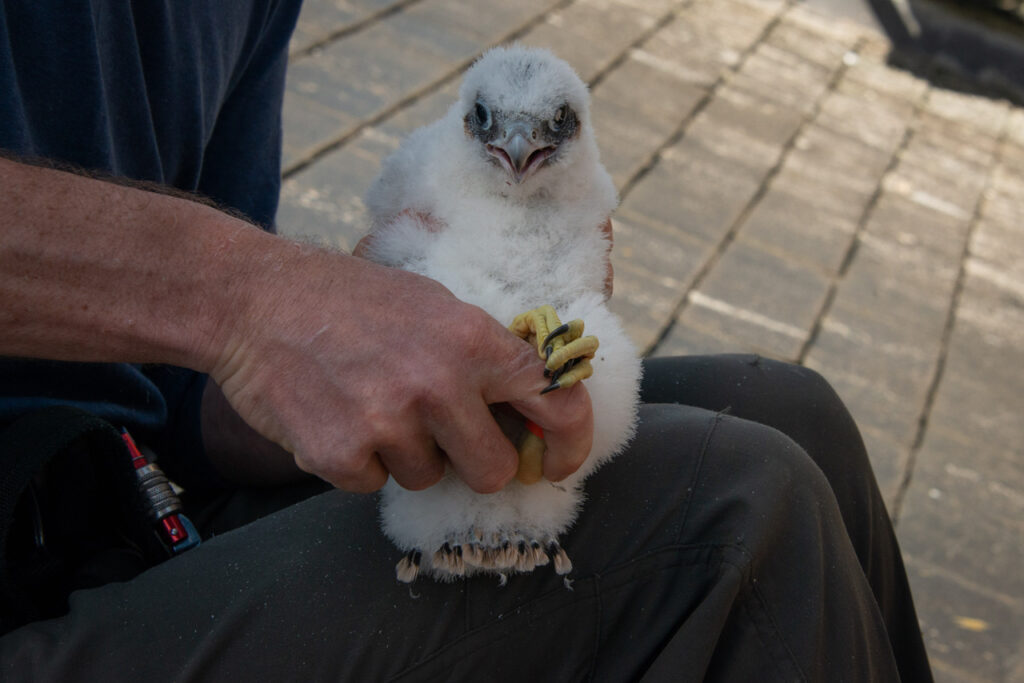
The eggs are expected to hatch by the end of April, after which experts from the group will scale the church to ring the chicks and record their measurements, aiding scientific research into these birds.
In the meantime, 18-year-old Zoology student Freya Dunbar-Simms, who chose to study at the University of Sheffield after spotting the peregrines during an open day last year, has been enlisted to help monitor the nest.
Ms Dunbar-Simms will be watching the live cameras around the clock to record key moments in the birds’ lives, such as when the eggs hatch and what the chicks are fed.
She said: “I’ll also be coming down whenever I can after lectures to watch them in person.
“I think it’s just so important to help protect them and research them, so it’s great to be able to get involved.”
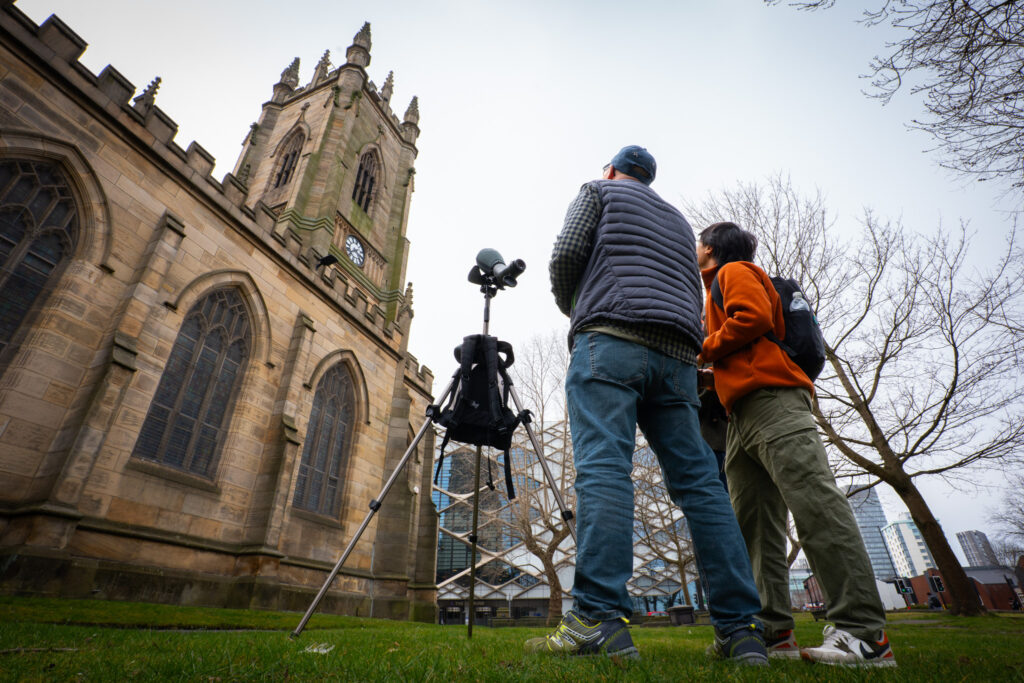
Although the peregrines go largely unnoticed by hundreds of students who attend lectures at the church every weekday, the noisy birds have caught the attention of some eagle-eyed enthusiasts.
Min Tayza, a 21-year-old who recently joined the University of Sheffield Birdwatching Society, said he was amazed to see a peregrine for the first time.
He said: “What a lifer! I just started birdwatching and I’ve already seen a peregrine falcon.
“It’s a superlative, and I see it as one of my first 20 birds. It’s crazy.”
Sheffield Bird Study Group said anyone who wants to help monitor the nest over the breeding season can get in touch with them via their website here.
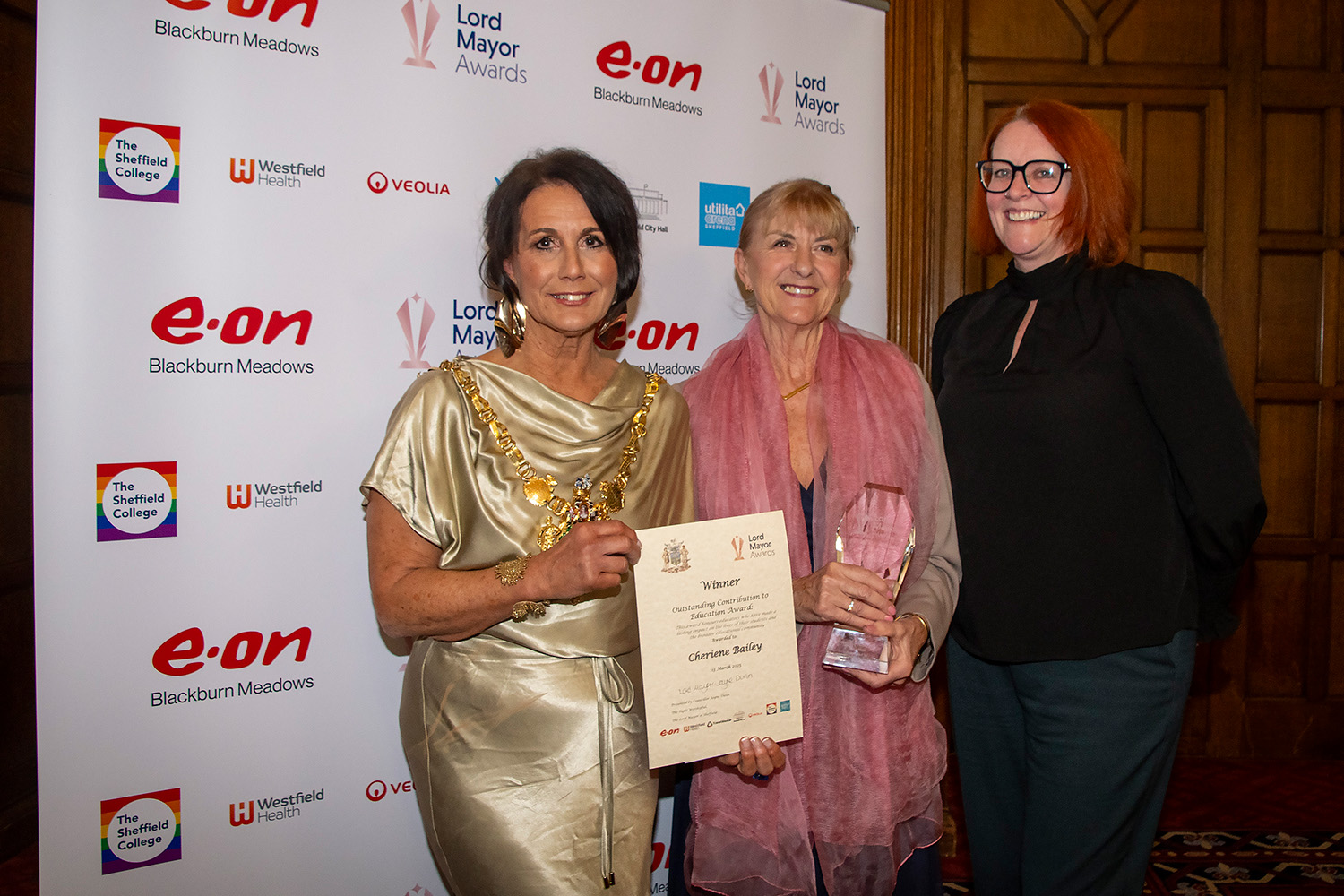
Sheffield dance teacher recognised at Lord Mayor Awards
A Sheffield dance teacher was awarded for her 53 years of outstanding contribution to education at the Lord Mayor Awards on 13 March.
Cheriene Bailey, 70, first started teaching dance at 17 years old when she opened her own business and said that she doesn’t know life without dance and teaching is what she was born to do.
Mrs Bailey has taught thousands of students across Sheffield, many of whom have gone on to have professional careers from ballet dancers to performing on the West End.
One former student, Jay Olpin, now stars in The Play That Goes Wrong on the West End. He said he carries the discipline that Mrs Bailey taught him in his acting.
He described Mrs Bailey as ”Incredibly passionate, very ambitious and very inspiring, very dedicated and had real amazing attention to detail.”
He said: “One time when I was around 12 she said I was perfect - that moment always stayed with me.
“Her words meant something.”
When talking about her former students, Mrs Bailey said: “We’ve had lots of success but also I've been very keen on high standards, but also I've been very much a friend and mentor to thousands of children and students.”
Jacob Whawell first joined Bailey-Cox Dance Academy at 8-years-old. He has since gone on to perform all over the world on cruise ships and starred in the West End show Cats.
He said: “Cheriene had the most incredible command of any room she walked into. Forever poised, she grabbed everyone’s attention and focus, and without ever raising her voice, was instantly respected.
“She helped raise many generations of young people and really made the community a better place.”
Adam Davies first started dancing at 3-years-old when he saw his sister in class.
He said: “Mrs Bailey could be quite scary but that was more because she wanted the most out of everybody.”
Adam has since gone on to work in 14 different countries at various ballet and contemporary companies.
The professional dancer described the time Mrs Bailey watched him perform at The Lyceum in Sheffield as a “full circle moment”.
Mrs Bailey spoke about her love for Sheffield at the mayoral awards: “We're a northern city, it's very friendly, very caring and It’s a beautiful place to live.”
She now teaches adult dance classes for older students. Speaking about this, she said: “I'm in a position to become their friend and it feels like we’re forming a community for those people and that's really special.”

On Sheffield Wire today
Good morning and welcome to today’s coverage of news from across South Yorkshire. It’s Monday 24 March 2025.
Our top stories today include:
- Drax Power Station greenwashing: Reporter Joseph Murphy spoke to a large protest group who are calling on the University of Sheffield to cut ties with the UK's biggest polluter.
- Peregrines return to St George’s nest: Reporter Billy Clarke interviewed Chris Greenwood, a trustee at the Sheffield Bird Study Group after a peregrine pair laid three eggs in a nest on top of St. George’s Church in Sheffield, with a possible fourth due to be laid on Monday.

- Disability cuts: Following the controversial announcement last week, our reporters Phoebe Snedker and Rianna Lobo spoke to people in Sheffield personally affected.
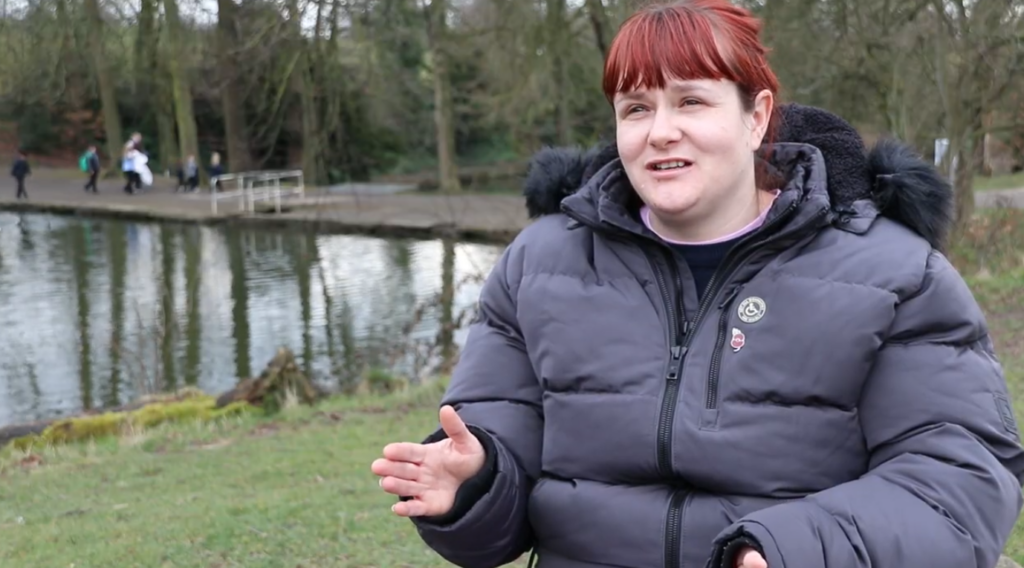
JUS News 4:30 Programme (10 March 2025)
Watch our 4:30 pragramme for news across Sheffield and South Yorkshire on 10th March 2025 with Alex Crombie and Kezhen Wu.
